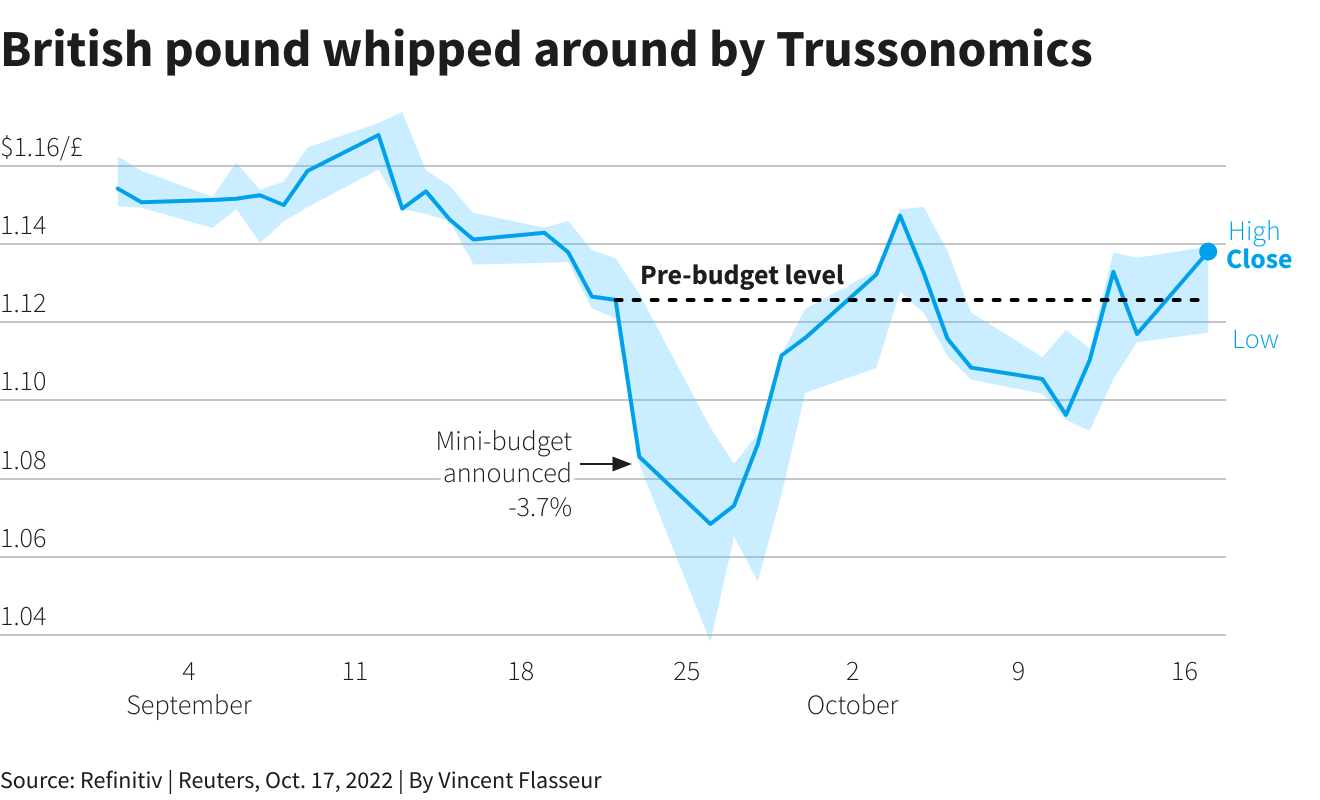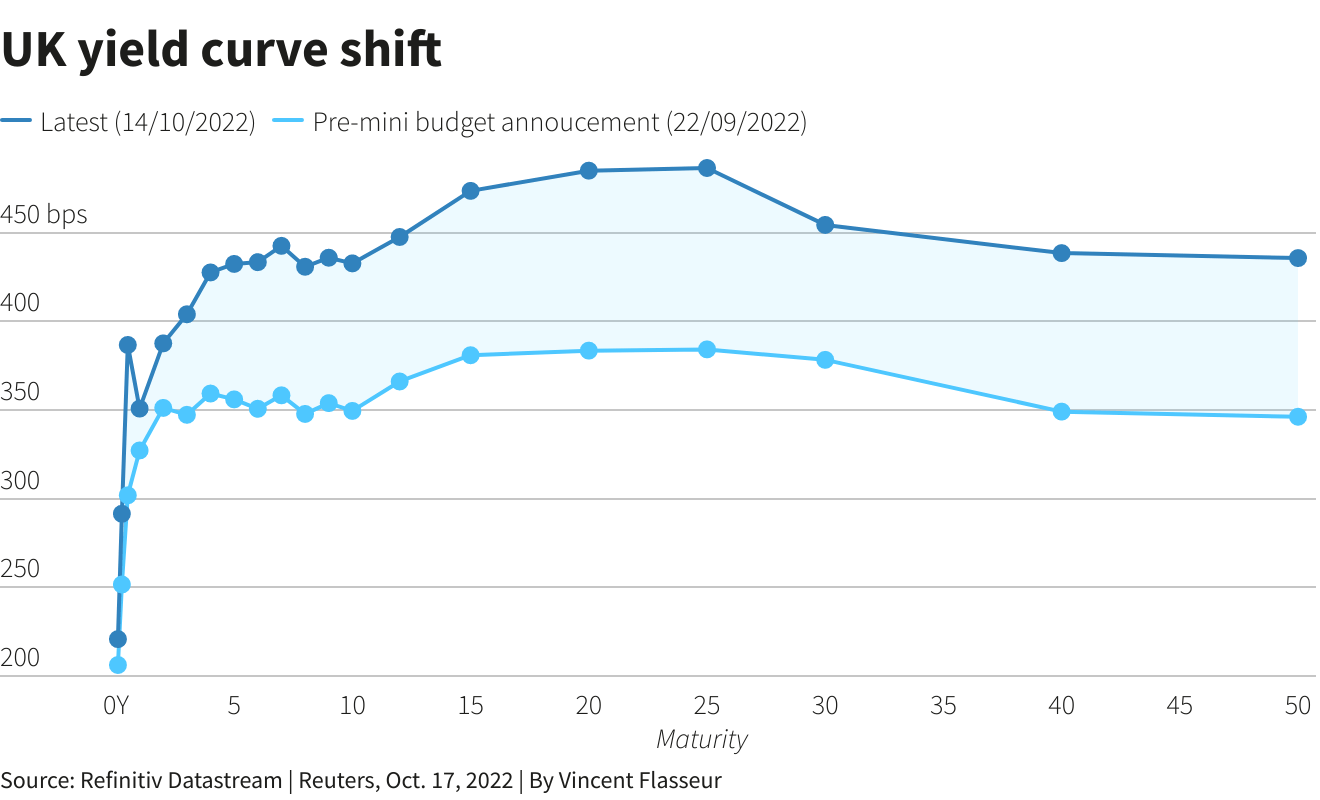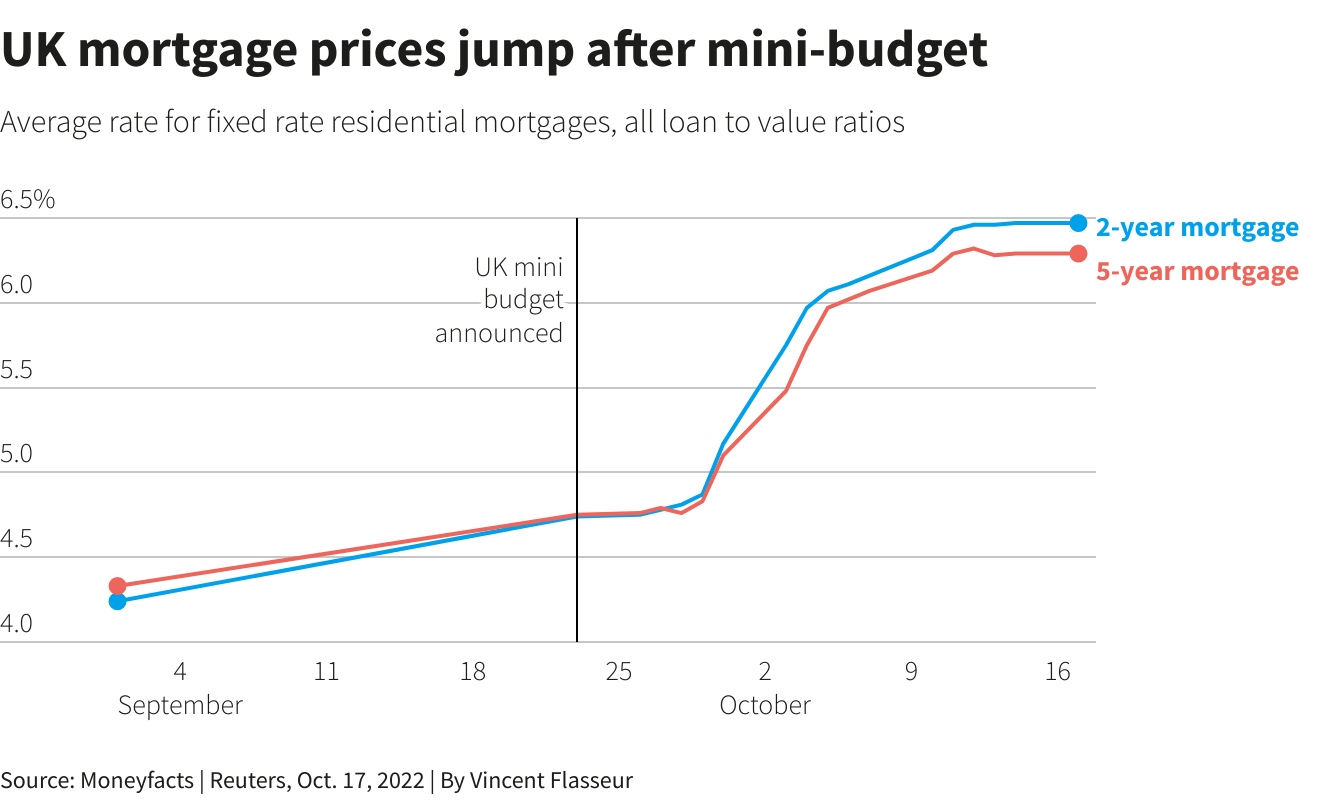
Britain's new finance minister Jeremy Hunt on Monday reversed the bulk of Prime Minister Liz Truss's economic growth plan of unfunded tax cuts, sparking a rally in battered UK assets.
But UK borrowing costs and mortgage rates remain well above where they stood before the plan's Sept. 23 announcement, while some 80 billion pounds ($91.22 billion) has been wiped off the value of London's blue-chip FTSE stock index.
With the economy still paying a price for the now-shelved plan, we take a look at some of the main pain points in markets.
1/ STERLING WOES
Sterling, already hurt by a robust dollar, accelerated its fall after Truss unveiled the plans in a "mini-budget" on Sept. 23 and hit a record low near $1.03. It is now just above levels preceding the growth plan's announcement around $1.13, but analysts say a bleak economic outlook limits any further gains.
The pound is also still down 16% so far this year, making it one of the worst performing major currencies. That is bad news for consumers since a weak currency pushes up the cost of imported goods, piling pressure on the Bank of England to keep hiking rates to contain inflation, running at almost 10%.

2/ BORROWING AT A COST
The amount of borrowing that would have been needed to fund Truss's tax cuts combined with a huge cost of a cap on energy prices - originally 72 billion pounds over the next six months alone - sent UK government bond yields, a proxy for borrowing costs, surging to their highest levels since 2008.
While those have come down significantly, Britain's 10-year yield remain 45 basis points above levels before Sept. 23 and 30-year yields are some 55 bps higher.
This highlights that even with the U-turn in Truss's economic policy, investors still demand a higher premium for holding British government debt.
UK bond yields have also risen more than Germany's, which recently also unveiled vast spending to cap energy prices. UK 30-year yields are up 196 bps since the start of August, Germany's are up 121 bps.

3/ CORPORATE HIT
Companies have seen even sharper rises in borrowing costs. Yields on sterling corporate debt were up 120 bps since the tax relief was unveiled at 6.84% as of Friday, according to a BofA index tracking investment-grade debt.
Junk bonds, which private equity firms use to fund leveraged buyouts, have fared even worse with yields still at 11.7% as of Friday, compared with 9.8% before Sept. 23.
Rating agency Moody's said turmoil in Britain's government bond markets "jeopardized financial stability", putting pressure on a broad range of financial firms from pension funds to banks and other lenders.
4/ MORTGAGE FIX
Britain's mortgage market was plunged into chaos by the growth plan, as the money markets that lenders rely on to price home loans bet on higher interest rates.
This volatility led lenders to withdraw around 1,700 mortgage products within a week – equivalent to 40% of the market – before reintroducing them at higher prices.
And although some calm has returned, the number of products is still 800 down and fixed-rate mortgage rates remain above 6% - the highest since 2008 - against around 4.75% before the budget, according to data provider Moneyfacts.
One in five families will take a financial hit from having to pay more for their mortgages between now and 2024 with about a quarter of the increase caused by the recent market turmoil, a think-tank said on Saturday.

5/ SUNKEN STOCKS
UK blue-chip stocks are still 3% below where they were traded prior to Truss's plan.
The FTSE-100 has seen some 80 billion pounds wiped out in market value, while mid-cap stocks, which tend to be more sensitive to the underlying economy, are 5% down.
(Reporting by Yoruk Bahceli, Dhara Ranasinghe, Amanda Cooper and Iain Withers; Graphic by Vincent Flasseur; compiled by Yoruk Bahceli; editing by Dhara Ranasinghe and Tomasz Janowski)
Thanks for signing up to Minutehack alerts.
Brilliant editorials heading your way soon.
Okay, Thanks!

